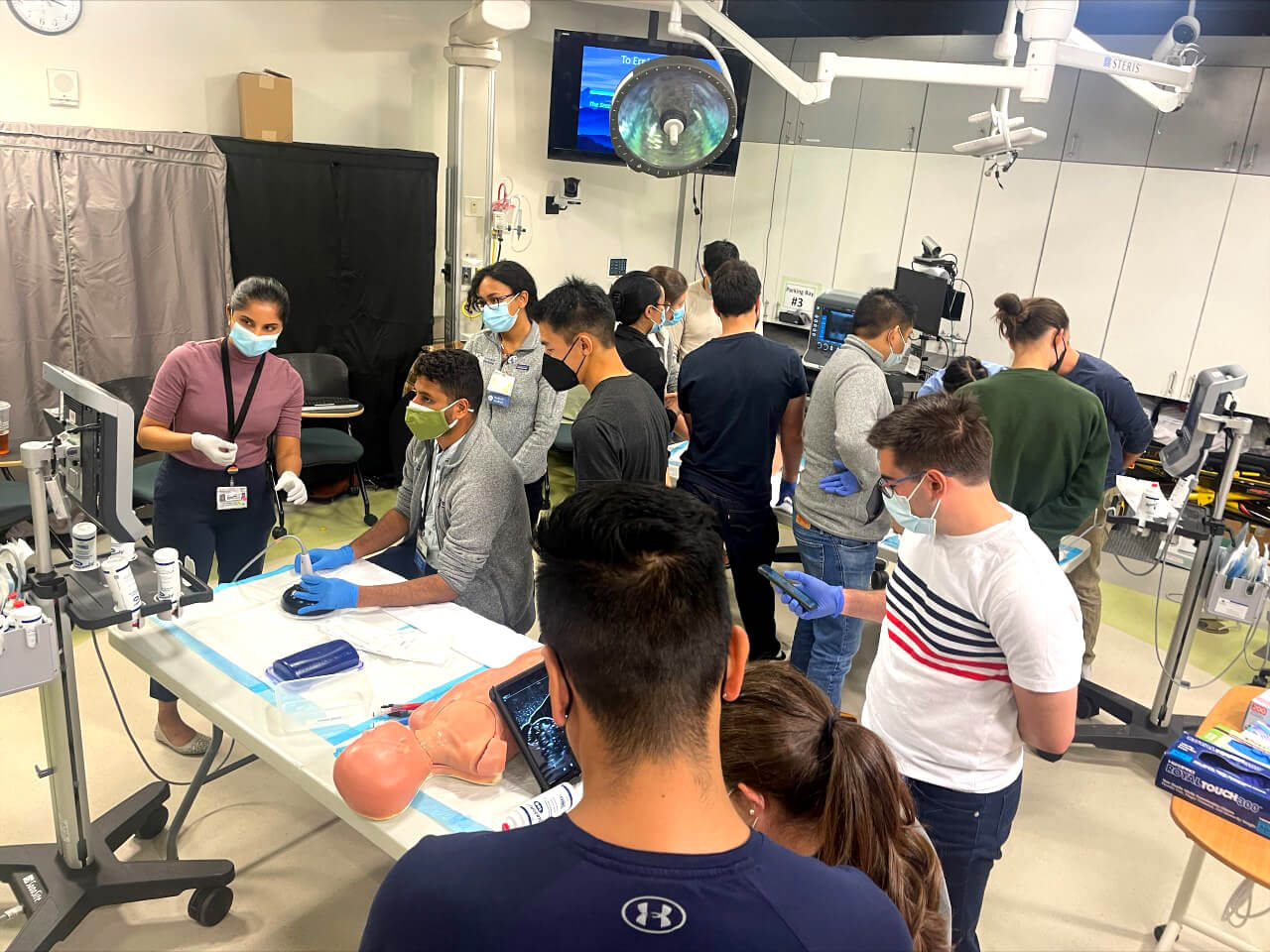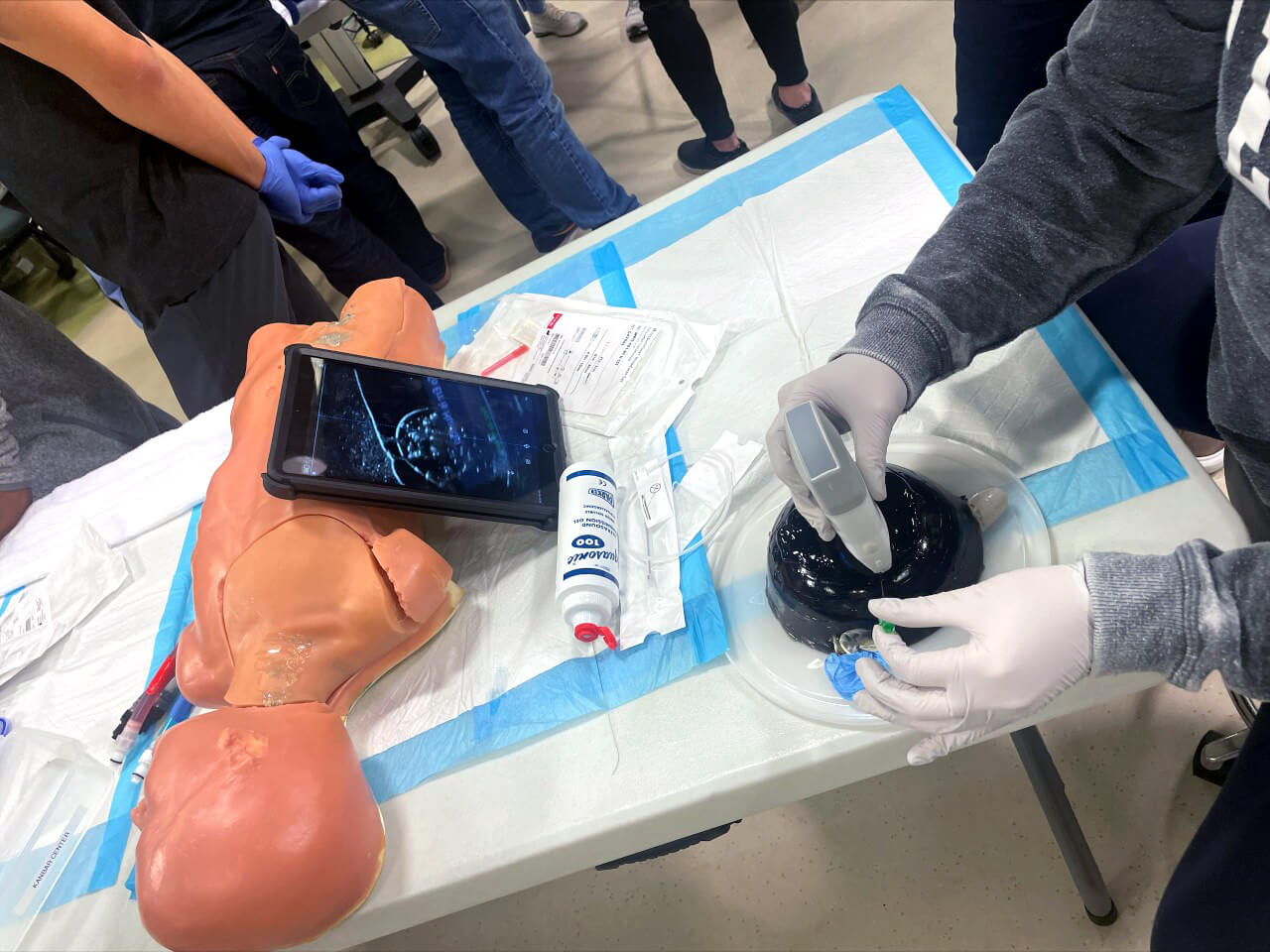Narrative Medicine and Well-Being Incorporated into New Ultrasound Procedure Simulation Course at the UCSF School of Medicine

In May 2022, three faculty members and a clinical fellow from the UC San Francisco Department of Radiology and Biomedical Imaging created and led a novel three-part ultrasound procedure course for senior medical students at the UCSF School of Medicine. Training focused on technique for central venous access, paracentesis, and thoracentesis paired with reflection and storytelling to contextualize procedural skills in a larger framework of patient experience and physician emotion.
Course faculty were Rachelle Durand, DO and Miles Conrad, MD, MPH from the Interventional Radiology section, and Preethi Raghu, MD and 2021-22 Clinical Fellow Stephanie Nguyen, MD, from the Abdominal Imaging and Ultrasound section.
The three-hour elective took place at UCSF Kanbar Center for Simulation and Clinical Skills and was part of the career launch phase of the fourth-year curriculum. Drs. Conrad and Durand led part one of the course, a didactic session on procedural techniques emphasizing how to use procedural schemas or algorithms when unexpected complications arise.
Part two of the course was a hands-on simulation where all students were able to apply and practice their procedural skills on specialized gel phantoms at various ultrasound scanning stations. “Recognizing how to troubleshoot difficulties during procedures is essential to being confident while learning procedural technique,” said Dr. Durand.
Part three was a narrative medicine session led by Dr. Raghu that integrated the storytelling aspect of a procedural experience using the perspectives of patients and physicians. "Performing procedures requires technical expertise. But absorbing the weight of a procedural error when feeling shame or anxiety requires emotional intelligence. Narrative medicine is a way to immerse trainees in the interplay between procedural errors, physician emotions, and patient experiences," said Dr. Raghu. During the session, students learned real stories of procedural errors in radiology alongside a framework for reflecting upon and processing these errors. "I still remember being in their shoes, equally excited and nervous about entering internship. The course in total felt like a safe space to practice procedural skills, share experiences and apprehensions, and normalize and plan for the challenges associated with performing procedures," said Dr. Nguyen.

"Procedural errors can take a toll on doctor well-being" said Dr. Conrad. "Learning how to recover from procedural complications could be integrated more into medical student radiology education. The UCSF School of Medicine has taught students the concept of 'second victim' for medical errors. So, we are building on that. Procedural error can be distinct from other medical errors committed by teams as it is often a sudden jarring experience for only one or two operators, making the experience especially traumatizing and isolating. Additionally, these procedures are often characterized as being 'basic' or 'minor,' making trainees feel even more stigmatized by their errors.”
UCSF Radiology faculty look forward to holding the ultrasound procedure course again in the upcoming academic year. Our involvement in UCSF medical student education also includes the UCSF Bridges coaching program, designed to provide academic guidance to promote professional and personal development throughout the medical school experience. Read more about our participation in the Bridges coaching program in a previous blog post.
